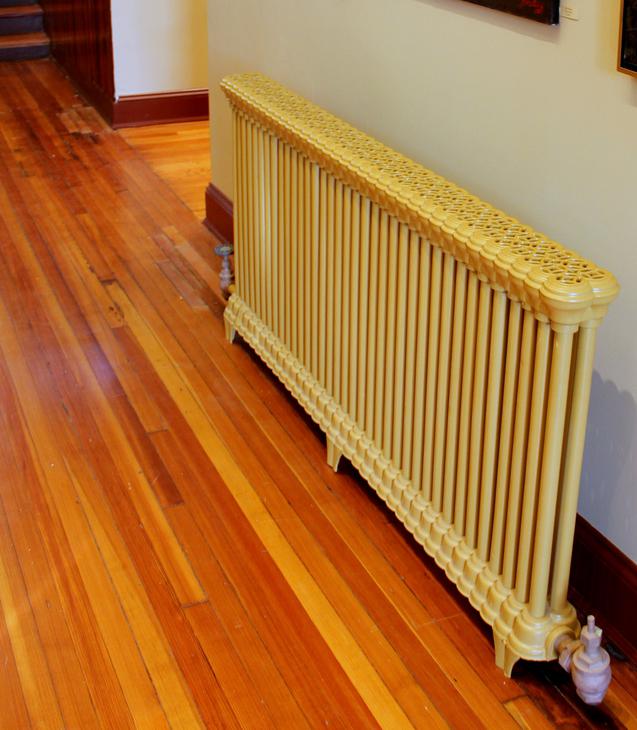At HomeQuestionsAnswered, we're committed to delivering accurate, trustworthy information. Our expert-authored content is rigorously fact-checked and sourced from credible authorities. Discover how we uphold the highest standards in providing you with reliable knowledge.
What are Hydronic Radiators?
Hydronic radiators are heating devices that use hot water as the source of heat. Hydronic radiators can be more energy efficient than forced air heaters because heat is not lost through the transportation of the heated air. Hydronic heating systems are quieter than forced air systems since they do not rely on a blowing fan to distribute heated air. They also do not dry out interior air as a forced air unit can. In addition, the lack of air movement and no circulation of airborne particulates have made hydronic radiators popular among consumers who suffer from allergies or respiratory ailments.
Hydronic radiators heat a room through radiant and convection heating. Radiant heating means that an object is heated by another object, without coming into direct contact with it. An example of this would be the warming effect of an outdoor fire. The people sitting around a fire are warmed by it, even though they do not come into direct contact with it. In interior radiant heating, the heat of the device heats an object directly, but does not actually warm the air.

In convection heating, the heat of the hot water in the radiator is transferred to the air surrounding the radiator. As the air is heated, it rises to the top of the room. There it displaces colder air, which forces the colder air down towards the bottom of the room. The colder air is then heated by the radiator and the convection cycle continues.
The hot water in a hydronic heating system is heated in a boiler. Boilers are generally powered by natural gas, propane, or electric power; although some boilers are designed to utilize solar or geothermal energy as well. As the water is heated, it is transported to the radiator through a series of pipes. When water reaches the radiator, the heat from the water is transferred to the surrounding air, warming the room.

As the water loses heat, it is transported back to the boiler to be re-heated. The circulation of water between the boiler and the radiator continues as long as the system is in operation. There are also combination boiler systems that provide heated water for both the hydronic heating system and for the interior plumbing.
In addition to wall or panel radiators, hydronic heating can also be provided through other methods. The most popular are radiant floor heating and radiant baseboard heating. With radiant floor heating, a network of pipes circulates heated water underneath the floor of a room. The heat from the water is transferred through the floor and ultimately to the room.

Radiant baseboard heating works in much the same way as radiator and floor heating systems. As the name suggests, baseboard heating units are installed at the base of a wall and are often chosen over radiator systems for aesthetic reasons, as they can appear less visually intrusive than a radiator.
While hydronic radiators can be extremely effective and efficient for many applications it may not always be the most efficient system for every application. Consumers considering a hydronic radiator system should take the time to research and determine whether or not a hydronic system is the most efficient system for their needs. Many local utility companies and heating contractors will provide consumers with information to help determine which heating system may be right for them.
AS FEATURED ON:
AS FEATURED ON:













Discussion Comments
Could the new A O Smith Vertex hot water heater work simultaneously as a traditional hot water heater and serve a hydronic radiator system, possibly with three Runtal radiators?
Good info. One thing was missing. Is a hydronic system more efficient than a conventional baseboard
system? I'm referring to an electric powered system. Would the savings if any offset the higher cost of the hydronic system?
Post your comments